Social unrest and a global pandemic have shaped an election that’s expected to break voter turnout records, as citizens mobilize in what many see as a fight for America’s future. In the District of Columbia, voters have been inundated for months with political messaging from both national elections and the crowded DC Council at-large race. Yet, for residents in parts of Columbia Heights and Park View, they may see some unfamiliar candidates on their ballots for positions that will likely impact their day-to-day lives.
There are currently four first-time candidates running for election to the Advisory Neighborhood Commission (ANC) 1A, a locally elected volunteer body representing much of Columbia Heights and Park View. And while COVID-19 has made it hard for them to campaign, several of the candidates claim the pandemic and its effects on their communities is what drove them to run for office.
Dieter Lehmann Morales, a 28-year-old paralegal, said he never anticipated running for political office. He’s now on the ballot to represent his Single Member District (SMD) 1A02, a northwest portion of Columbia Heights.
“There comes a time, I guess, in every person’s life, where you realize things aren’t working the way that they should be, or that the people who are representing us are not really representing us; they’re not looking after us,” Morales said. “At what point do we say, enough is enough. It’s time for me to use my own privilege and my own capacity to make that change happen.”
Morales is a Mexican immigrant who came to the United States when he was eight years old. If he wins this election, he will be representing what he describes as a diverse and “vibrant migrant community” with a large Salvadoran population. Some residents are undocumented immigrants, he said, which makes it difficult for them to advocate for themselves. Morales noted that there isn’t a lot of minority representation in government. He’s looking forward to being someone his constituents can relate to and rely on, knowing that he comes from a similar background as them, speaks their language and has an understanding of the issues they face.

Mukta Ghorpadey, a Columbia Heights resident, running for commissioner in SMD 1A07, explained a similar motivation for her shift into politics. She recounted how she was able to apply her work as a high school career counselor to helping neighbors get unemployment benefits and resources after many lost their jobs early in the pandemic. The experience alerted her to the lack of infrastructure in place to provide such information to her community. Joining the ANC seemed to her the best way to help her neighbors.
The ANC is a unique feature of the District, which lacks statehood and therefore the traditional state governmental systems, like representative legislatures. The District’s Home Rule Charter establishes a mayor, city council and ANCs as the city’s governmental system. And the ANC, Ghorpadey said, is “the most local form of public office, and I think that can make it super powerful. People are more likely to know me—because I’m their neighbor—than the people on city council. That’s the nature of local politics.”
However, not all residents are aware of their hyperlocal representatives. Michael Jones has lived in Columbia Heights for over 20 years, but said he doesn’t know what the ANC is or does, let alone who his commissioner is. While Jones said he thinks affordable housing is the biggest issue affecting his community, with the area getting “pretty pricey,” he doesn’t know where he would seek out community resources if he needed them or how to engage with his local government.
Olivia Cheng and Jam Rubio recently bought a house in Columbia Heights, but have been living in the neighborhood for nearly three years. Neither knew who their commissioner was but expressed an interest in wanting to know more about the community and ways to stay informed. “I feel like I want to be a little bit more involved, and I should, but I just don’t really know how to,” Cheng said.
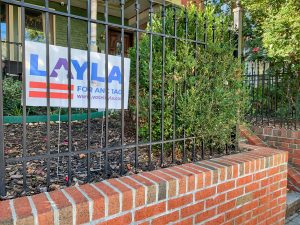
Public interest in politics and civic engagement often focus on the national branches of government. Presidential election years usually see higher voter turnout, while midterm numbers tend to drop. In the last two presidential elections, 2016 and 2012, voter turnout in ANC 1A was 61% and 64%, respectively. During the past two midterm elections, voter turnout in that ANC area dropped to 47% in 2018 and 37% in 2014, according to data from the DC Board of Elections. Assuming these trends continue, the upcoming election will likely see greater voter participation across all elections.
Voter turnout doesn’t translate directly to participation in ANC elections though, as voters are often more likely to leave blanks on their ballots for elections that are unfamiliar. ANCs serve two-year terms, their races coinciding with congressional elections. According to DC Board of Elections data, in ANC 1A during the 2018, 2016, and 2014 elections, between 20% and 34% of residents who voted did not vote for a commissioner.
Low civic engagement on the local level, particularly from young voters, is one frustration Commissioner Matthew Goldschmidt noted. “Civic engagement is still seen as good, but for some reason, young people think that good is only done at the national level,” Goldschmidt wrote in an email. “Because our politics and news media has become so nationalized of late, young people don’t understand that what happens at the municipal level affects them 10,000x more than what happens at the White House.”
Goldschmidt, who has served two non-consecutive terms in the ANC, is not running for re-election this year. However, he didn’t rule out running again in the future. For this election, he’s encouraged fellow neighbor and first-time candidate Chris Hall to run. Hall wrote in an email that he is running because no one else in his SMD was interested and they need representation. Without an ANC email, contacting District agencies to address neighborhood issues could take weeks to resolve. Goldschmidt further explained, “going to your ANC is often more effective than calling 311 when your trash hasn’t been collected.”
The Wash also reached out to Judson Wood, the fourth new ANC 1A candidate, but has not heard back.
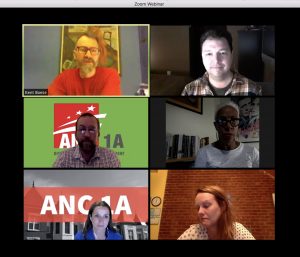
The ANC functions as an advisory body, acting as an intermediary between residents and the District government and federal agencies, explained Commissioner Kent Boese, chairman of ANC 1A. While he conceded that the advisory body has no concrete authority, their advice is weighed heavily by consulting agencies. Projects such as defending the redevelopment of Park Morton, pushing for the expansion of crosstown bike lanes and advocating for the renovation of the recreation center are all within the scope of a commissioners’ role and have been priorities for Boese.
Smaller community concerns like trash pick-up, stop signs and speed bumps are also managed by commissioners. Boese recalled a commissioner recently telling him about an issue with street cleaning signs being posted on the wrong side of the block. Residents who received parking tickets contacted their ANC and their commissioner was able to sort out the issue. “He was able to get the right people involved,” Boese said.
Boese is one of eight commissioners running for re-election, unopposed.
ANC 1A – Map overview of the expected commissioners by SMD after elections

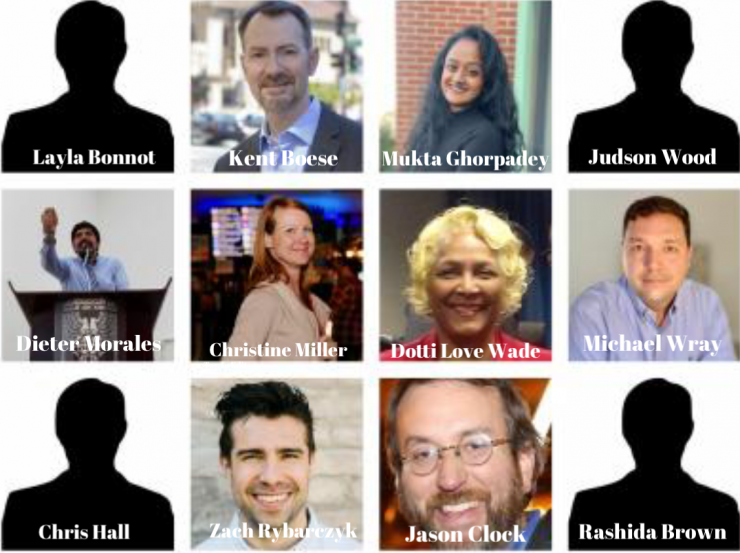
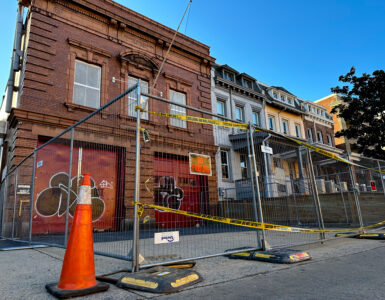

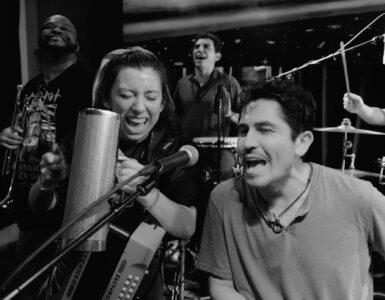










very beneficial information shared in this text, perfect written! .